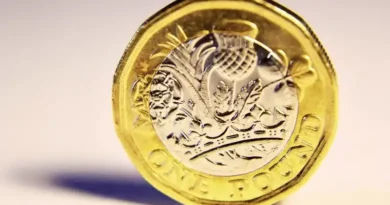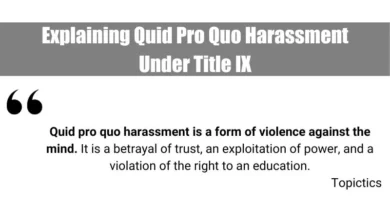Explaining Quid Pro Quo: From Deals to Harassment
Takeaways
| Key Points |
|---|
| Quid pro quo, a Latin term meaning “something for something,” refers to reciprocal exchanges where one party provides a benefit in return for something of equal value, a principle deeply embedded in legal, business, and political contexts. |
| Historically, it evolved from barter systems in ancient trade to sophisticated legal frameworks during the Roman Empire and the Renaissance, with modern applications in contracts, settlements, and employment laws. |
| While legitimate quid pro quo arrangements, such as trade agreements or plea bargains, are essential for societal functioning, misuse—like political corruption or workplace harassment—can lead to severe legal and ethical consequences. |
| High-profile scandals, such as Watergate and the Trump impeachment inquiry, underscore the public’s mistrust of quid pro quo in politics, while legal protections like Title VII of the Civil Rights Act and the FCPA aim to mitigate unethical practices. |
| As society progresses, increased regulation, education, and transparency will be vital in promoting ethical exchanges and ensuring public trust in institutions. |
Introduction
Definition of Quid Pro Quo
Quid pro quo, a Latin term translating to “something for something,” embodies the concept of mutual exchange. This principle is deeply rooted in both historical and modern transactions, reflecting a reciprocal arrangement where one party provides a benefit in return for something of equal value from another. The term is commonly used in legal, business, and political contexts to describe these exchanges.
Experts say quid pro quo refers to “something given or received for something else.
In essence, it is an agreement where both parties offer value. They expand on this by highlighting that these exchanges can vary from simple bartering to complex contractual agreements in contemporary settings. The Legal Information Institute defines it within legal frameworks, emphasizing its role in binding agreements and contractual obligations.
Common Contexts for Quid Pro Quo
Quid pro quo arrangements appear in various sectors. Understanding these contexts helps identify both legitimate and problematic exchanges.
1. Business Transactions:
In the business realm, quid pro quo often involves trade agreements, mergers, and acquisitions. Companies may exchange services, goods, or financial benefits. For example, a corporation might offer discounted rates to a supplier in return for priority delivery services. These exchanges are typically formalized through contracts to delineate each party’s responsibilities and benefits.
2. Employment:
In the workplace, quid pro quo is frequently discussed in the context of sexual harassment. This occurs when job benefits, such as promotions or salary increases, are conditioned upon the employee providing sexual favors. The EEOC defines this form of harassment as illegal under Title VII of the Civil Rights Act of 1964.
3. Legal Agreements:
Legal contexts see quid pro quo in settlement negotiations and plea bargains. For instance, a defendant might agree to plead guilty to a lesser charge in exchange for a reduced sentence. These agreements are carefully scrutinized to ensure fairness and legality.
4. Politics:
Quid pro quo in politics often relates to corruption and bribery. Politicians may offer legislative support in exchange for campaign contributions or other personal gains. Notable scandals, such as the Watergate affair, highlight the detrimental effects of such exchanges on public trust and governance.
Historical Context
Origins of Quid Pro Quo
The concept of quid pro quo, while the term itself originated in the 16th century, reflects much older practices of reciprocal exchange. The Latin phrase “quid pro quo” translates directly to “something for something.” Initially, apothecaries used it in the 16th century to describe substituting one medicine for another, sometimes with unintended or fraudulent effects. This term application contributed to the broader understanding of reciprocal exchanges, which are fundamental to many economic and social transactions.
In historical trade, barter systems exemplified the quid pro quo principle, which involved direct goods and services exchanges. Before the advent of currency, societies relied on these exchanges to meet their needs. Such systems were foundational in developing more complex economic structures and the legal frameworks governing transactions.
Evolution Through History
As societies evolved, so did the complexity of quid pro quo arrangements. During the Roman Empire, legal frameworks began to formalize these exchanges. Contracts and agreements were meticulously documented, outlining each party’s obligations. This period marked a significant advancement in the regulation of mutual exchanges.
In medieval Europe, quid pro quo became intertwined with feudal systems and the relationships between lords and vassals. The land was granted in return for military service, illustrating the application of quid pro quo in societal hierarchies and governance structures.
The Renaissance era saw further quid pro quo sophistication in commerce and law. The emergence of merchant classes and the expansion of trade networks necessitated more intricate contractual agreements. Legal scholars of the time, such as Sir Edward Coke, began to explore and define the nuances of these exchanges within the framework of common law.
In modern times, quid pro quo has permeated various sectors, including business, law, and politics. The 20th century witnessed its association with political corruption and bribery, particularly highlighted by scandals like Watergate. Such events underscored the darker implications of quid pro quo, where mutual exchanges were exploited for personal or political gain.
Legal Aspects of Quid Pro Quo
Legal Definitions
Quid pro quo, translating to “something for something,” is defined in various legal texts. It denotes an exchange where one thing is given in return for another. The Legal Information Institute elaborates, emphasizing its application in contracts and legal agreements where reciprocal obligations are established. In legal contexts, quid pro quo often appears in discussions around corruption, bribery, and employment law, particularly sexual harassment.
Relevant Laws and Regulations
Several laws address quid pro quo to curb unethical practices and protect individuals in various environments. Title VII of the Civil Rights Act of 1964 explicitly prohibits quid pro quo harassment in the workplace, defining it as a form of employment discrimination. This law protects employees from being coerced into providing sexual favors in exchange for job benefits or to avoid negative employment actions.
Additionally, the Foreign Corrupt Practices Act (FCPA) addresses quid pro quo in international business, prohibiting U.S. entities from offering bribes to foreign officials to gain business advantages. These regulations are designed to promote fairness and transparency, mitigating the potential for abuse in business and government.
Quid Pro Quo in Employment
Quid Pro Quo Harassment
In the employment sphere, quid pro quo harassment occurs when job benefits are conditioned on the provision of sexual favors. This harassment exploits power dynamics, making employees feel compelled to comply to secure or retain employment benefits. The Equal Employment Opportunity Commission (EEOC) identifies such practices as illegal, stressing that any employment decisions influenced by such exchanges violate Title VII of the Civil Rights Act.
Legal Protections for Employees
A robust legal framework safeguards employees against quid pro quo harassment. Title VII of the Civil Rights Act of 1964 is the cornerstone of these protections. It mandates that employers maintain a workplace free from discrimination, including sexual harassment. Employees can file complaints with the EEOC, which investigates allegations and can take legal action against employers who violate these protections. Moreover, companies are encouraged to implement training programs and establish clear policies to prevent harassment and foster a safe working environment.
Quid Pro Quo in Business Transactions
Examples in Business
Quid pro quo arrangements in business transactions are commonplace and can range from simple trade agreements to complex corporate deals. For instance, a company may offer discounted products to a supplier in return for priority shipping. These exchanges are often formalized through contracts that specify the terms and obligations of each party. Another example is merger and acquisition deals, where companies negotiate terms that benefit both parties, such as shared resources or market access.
Ethical Considerations
While quid pro quo arrangements are legally acceptable in business, ethical considerations are paramount to prevent conflicts of interest and corruption. Transparency and fairness should underpin these transactions to avoid any appearance of impropriety. For example, ethical business practices require that all parties disclose potential conflicts and ensure that decisions are made in the company’s and its stakeholders’ best interest. Maintaining ethical standards helps build trust and ensures the integrity of business operations.
Quid Pro Quo in Politics
Historical Examples
Quid pro quo has a long political history and is often associated with corruption and scandal. One of the most notorious instances is the Watergate scandal in the 1970s. This political scandal involved a break-in at the Democratic National Committee headquarters and the subsequent cover-up by members of the Nixon administration. The scandal led to President Richard Nixon’s resignation and highlighted the misuse of political power for personal gain.
Another historical example is the Teapot Dome scandal of the 1920s. This involved government officials accepting bribes from oil companies in exchange for leasing naval petroleum reserves without competitive bidding. The scandal marred Warren G. Harding’s presidency and led to significant public outcry and legal reforms to curb such abuses.
Modern Political Scandals
Quid pro quo has surfaced in several high-profile political scandals in recent years. A notable case is the impeachment of President Donald Trump in 2019. The charges included allegations of soliciting foreign interference in the 2020 U.S. presidential election. It was claimed that Trump withheld military aid to Ukraine to pressure the Ukrainian President to announce investigations into his political rival, Joe Biden.
Another modern example is the investigation into New Jersey Governor Chris Christie’s administration, commonly called “Bridgegate.” This scandal involved the alleged use of public resources for political retribution, where lane closures on the George Washington Bridge were purportedly ordered to punish a local mayor who did not endorse Christie’s re-election campaign.
Impact on Society
Perceptions and Misconceptions
Quid pro quo often carries negative connotations, particularly in the political and corporate spheres. The term is frequently associated with corruption, bribery, and unethical behavior. This perception can overshadow legitimate and beneficial reciprocal arrangements. Public understanding of quid pro quo is typically skewed by high-profile scandals, leading to a generalized mistrust of such exchanges.
Social and Ethical Implications
The ethical implications of quid pro quo are significant. When misused, it undermines public trust and the integrity of institutions. For instance, quid pro quo political corruption erodes democratic principles, as decisions are influenced by personal gain rather than public good. Similarly, in business, unethical quid pro quo practices can lead to unfair competitive advantages and damage corporate reputations.
Case Studies
Notable Legal Cases
Several legal cases highlight the complexities and ramifications of quid pro quo arrangements. One such case is the prosecution of former Illinois Governor Rod Blagojevich. Blagojevich was convicted on multiple charges, including attempting to sell the U.S. Senate seat vacated by Barack Obama following his election as President. This case underscored the severe legal consequences of quid pro quo political corruption.
Another notable case involved Sheldon Silver, the former New York State Assembly Speaker. Silver was convicted of corruption charges for accepting bribes for political favors. His case exemplifies how quid pro quo can infiltrate state politics and highlights the ongoing battle against political corruption.
Lessons Learned
These cases provide valuable lessons on the importance of transparency and ethical conduct. They demonstrate the need for stringent laws and regulations to prevent quid pro quo corruption. Moreover, they highlight the role of vigilant enforcement agencies in upholding legal and ethical standards.
Public awareness and education are also crucial in fostering a culture that rejects corrupt practices and values integrity in all exchanges.
Conclusion
Quid pro quo, meaning “something for something,” is a principle deeply rooted in legal, business, and political contexts. Its historical evolution from ancient barter systems to modern-day legal frameworks illustrates its complexity. While legitimate quid pro quo arrangements are essential for various transactions, their misuse can lead to significant ethical and legal issues, particularly in politics and business. Understanding the legal aspects, recognizing the impact on society, and learning from notable cases are crucial for fostering ethical practices.
Future Implications
As societies evolve, the scrutiny and regulation of quid pro quo arrangements will likely intensify. Future implications include the potential for more robust legal frameworks to prevent abuse and ensure fairness. Education and transparency will be pivotal in changing public perceptions and promoting ethical behavior in all sectors.
Continuous vigilance and adaptation are necessary to navigate quid pro quo complexities and safeguard institutions’ integrity.









